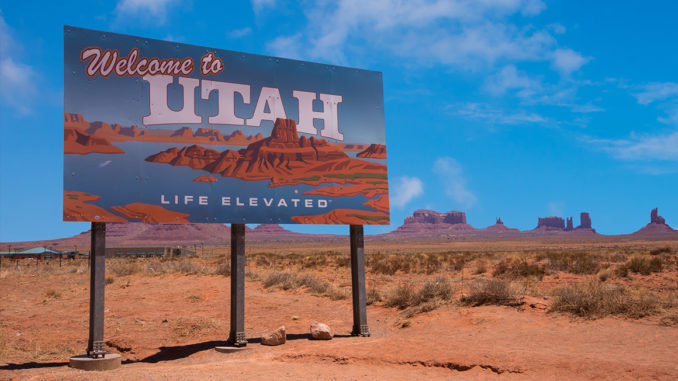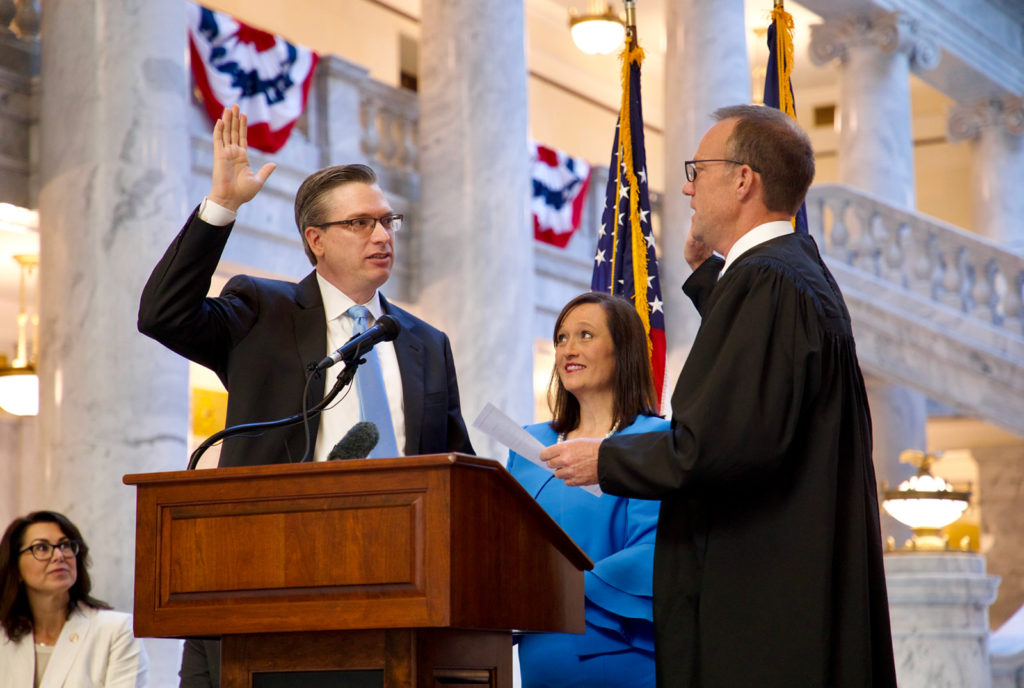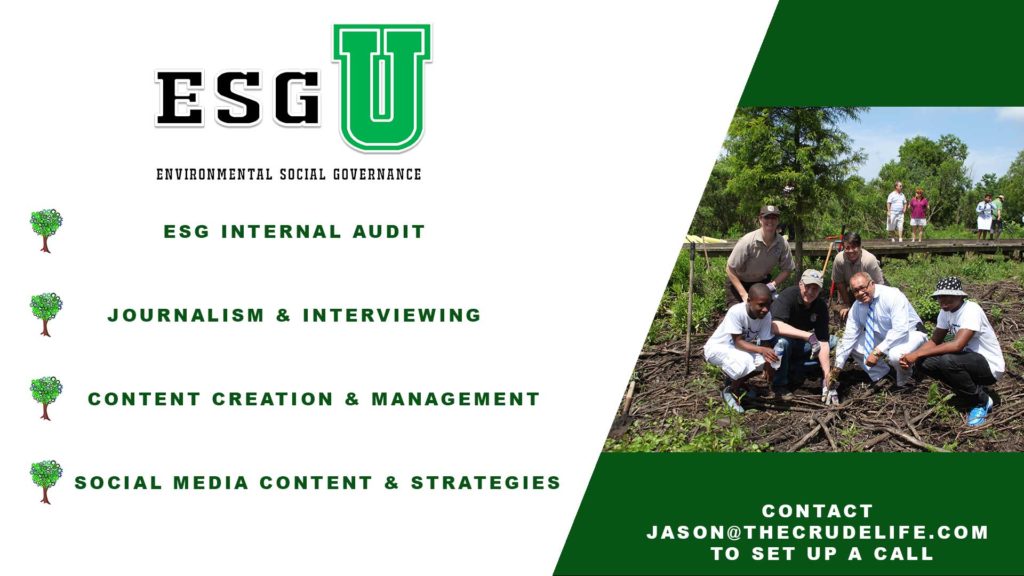
Ever since Elon Musk tweeted about ESG more and more people are checking into the acronym to find out why the billionaire is paying attention to it. This week the ESG Express it made it’s way to Utah, and the Beehive State does not like ESG. In fact they are sluffing their ESG report this year. Moab money, Moab problems.
Late last week, Utah’s top elected officials sent a letter to S&P Global Ratings demanding they cease applying environmental, social, and governance factors to the state through the use “a politicized rating system based on indeterminate factors”.
Governor Spencer Cox, State Treasurer Marlo Oaks, State Auditor John Dougall, Attorney General Sean Reyes and the state’s entire congressional delegation signed the letter which criticized the S&P’s use of “ESG indicators.”
ESG stand for “environmental, social and governance” and these “indicators” include things like climate change, water usage and human rights stances. These political positions will now impact your ability to acquire capital while putting a dark cloud of ESG smoke over any company who doesn’t abide by these rules.
ESG is really a forced discipline really. In the 1990’s they called this social psychological practice on the individual “manufactured consent”. Only instead of the social engineering formula being done on the individual, ESG layers in control through the currency in your pocketbook via your place of work, worship and governments. And quite possibly one day your home loan may be included in these ESG Tasks.
Currently companies are being forced through financial and political manipulation to support a position on a subject that is subjective. That seems to be the objective.
The issue most are having with ESG Indicators and Ratings are more about manner in which ESG is being used than the ESG itself. The majority of people connect and can metaphorically support the principals of ESG, however, seeing it used to further a political agenda without asking tax payers what they think is beyond insulting.
The way ESG is being presented into the public’s discourse is more in the “controlling” category of context and words than anything of education or awareness.
Check out this quote from the letter Utah sent S&P Global:
We are concerned that the normative assessment and disclosure of ESG factors will unfairly and adversely affect Utah’s credit rating and the market for Utah’s bonds, especially where the alleged indicators are not indicative of Utah’s ability to repay debt.
Utah’s state treasurer also issued a separate statement just to demonstrate how irritated they are with the implied-ESG behaviors and attitudes.
ESG is about controlling and forcing behaviors. It attempts to do through capital markets what activists and their government allies have been unable to do through democratic processes. It is a political score that, intentionally or not, can result in market participants using economic force to drive a political agenda.
Hear that S&P Global. If Utah-lk the talk, you better walk to the walk too. Utah has been consistently ranked Number One if not Top Three in about every economic development growth study the past decade. And now some group of Appointed Leaders are going to decide the Land of Saint’s economic fate?
Over the past year it has become clear that the trendy ESG movement has become a political device to use economic muscle to manufacture consent at a speed that is beyond a voter’s public processing skills.
The lack of support from companies to amplify an ESG message and arrogant dismissal from leadership may be the reason the planet is in this ESG mess right now.
With that said, there are elements withing ESG that have a bearing on investment return or the creditworthiness, but assigning them an acronym is an easy way to detach the people from their investments while being able to persuade or control their emotions at the same time.
The Utah letter is a very interesting read from how they frame the conversation. The authors call out the use of ESG for political means but also for the way they confront the intellectual confusion within the balancing act of the letters E-S-G.
And then there’s this “truly baffling” ESG scoring example:
For example, S&P gave Russian-controlled energy producers higher ESG ratings than similar entities in the U.S. Russian energy giants Gazprom and Rosneft outscored American energy companies ExxonMobil and Chevron on S&P’s ESG scale. This despite the fact that Vladimir Putin’s Russian government is the majority owner of Gazprom and owns a 40% stake in Rosneft . . .
There’s more in the S for Social vein, including a reference to state-owned China Petroleum & Chemical Corporation’s ESG score. Is this a sign of the growing awareness of China’s influence in ESG.
One portion of the letter I completely agree with is their suggestion that S&P’s membership of the Net Zero Financial Services Providers’ Alliance should raise antitrust issues. I’ve actually tried to raise this issue publicly in my ESG talks in Tulsa, Greeley, Odessa, Moorhead and Bismarck.
The quick history of United States antitrust law generally begins with the Sherman Antitrust Act 1890, although some form of policy to regulate competition in the market economy has existed throughout the common law’s history. Although “trust” had a technical legal meaning, the word was commonly used to denote big business, especially a large, growing manufacturing conglomerate of the sort that suddenly emerged in great numbers in the 1880s and 1890s. The Interstate Commerce Act of 1887 began a shift towards federal rather than state regulation of big business. It was followed by the Sherman Antitrust Act of 1890, the Clayton Antitrust Act and the Federal Trade Commission Act of 1914, the Robinson-Patman Act of 1936, and the Celler-Kefauver Act of 1950.
One of the more well known trusts was the Standard Oil Company; John D. Rockefeller in the 1870s and 1880s had used economic threats against competitors and secret rebate deals with railroads to build what was called a monopoly in the oil business, though some minor competitors remained in business. In 1911 the Supreme Court agreed that in recent years (1900–1904) Standard had violated the Sherman Act (see Standard Oil Co. of New Jersey v. United States).
It broke the monopoly into three dozen separate companies that competed with one another, including Standard Oil of New Jersey (later known as Exxon and now ExxonMobil), Standard Oil of Indiana (Amoco), Standard Oil Company of New York (Mobil, again, later merged with Exxon to form ExxonMobil), of California (Chevron), and so on.
In approving the breakup the Supreme Court added the “rule of reason”: not all big companies, and not all monopolies, are evil; and the courts (not the executive branch) are to make that decision. To be harmful, a trust had to somehow damage the economic environment of its competitors.
My Libra 
Remember the US Supreme Court precedent in business is this “To be harmful, a trust had to somehow damage the economic environment of its competitors”.
Is a Financial Trust an actual trust? And how much do you trust your Trust Agent?
Now, here are a couple other usual suspect’s comments from Utah’s The Greatest No On Earth.
Moody’s:
Sustainability and climate change are fundamental considerations to seize opportunities and manage risk in today’s global capital markets. Our data and insights across Environmental, Social and Governance (ESG) and climate risks, as well as sustainable finance, can help you achieve the objectives of the sustainable development agenda.
“Sustainable” Fitch:
“An objective and comprehensive assessment of ESG performance at Entity, Instrument, and Framework level with superior coverage and granularity. Independent data and insight that will set a new standard and will allow a pure ESG cross-comparison view”.
Bloomberg:
Utah’s governor and its federal lawmakers are objecting to S&P Global’s move to publish ESG scores for U.S. states, calling it an undue politicization of the ratings process.
In a letter sent to the firm on Thursday, the politicians — all Republicans — lay out a lengthy rebuke of S&P’s move to release environmental, social and governance assessments, or a so-called ESG score. Despite Utah’s results falling in line with many other states, the officials argue S&P should focus strictly on financial fundamentals . . .
S&P’s ESG indicators include categories like human rights, social integration, low-carbon strategies, climate measures and sustainable finance.
I should mention that there is one state who has divested themselves from ESG. Jason Isaac, Director of Life:Powered, a national initiative of the Texas Public Policy Foundation to raise America’s energy IQ, joined Jason Spiess to talk about how Texas became the first state to break through on the ESG Narrative allowing fossil fuels to have a seat at the table.
“We were the first state to actually get it passed and we are currently working and helping educate policy makers in other states around the country,” Isaac said. “It’s great because the leftist environmentalist climate cult media is starting to write about this and their alarm sensors are up because we got this done in Texas.”
Isaac continues explaining the difference between Texas and states who tried but failed in passing similar legislation. He also explained how municipalities and the state are tied to companies like BlackRock and Bank of the West. Click here for the interview
Back to Utah, who appears to be All-In against the S&P Global-influenced ESG narrative. In closing, this ESG University Classroom Column will use the words of Utah State Treasurer Marlo Oaks, who has been very vocal about ESG shortly after he took office last summer.
The ESG movement is anti-capitalist, anti-American, and must be stopped in its tracks. States are uniquely positioned to push back on this perversion of free markets.
Or as my friend in Salt Lake City says, “They biffed it”.
One thing I know first hand about Utah and their environmental and economic policies… once you go Behind the Zion Curtain, the Bryce is right.
Class dismissed til next week.
Questions on today’s lesson? Know someone using Ethical Energy? ESG University wants to know who these leaders are as we continue to showcase and highlight ESG solutions in
energy. For consideration, please email studio@thecrudelife.com companies, people and organizations showing ESG in action.
ESG University Classroom Column is written by Jason Spiess and no way reflects the mission or position of his other media companies. ESG University is an educational paper with classic newspaper op/ed elements sprinkled in. Because of this, we must categorize the column as Opinion and Editorial and run this disclaimer.
If anyone would like to schedule an interview, meeting or news tip email studio@thecrudelife.com
Industrial Integrity and Energy Ethics are the new entry level expectations in oil and gas, and The Crude Life continues to create original Local, Boots-On-The-Ground Journalism while showcasing other environmentally conscious companies.
Communication is vital in today’s energy extraction and empowerment.
About The Crude Life
The Crude Life produces original content that focuses on industry, the people, energy innovations, community building and it’s proactive culture. Our custom content is non-polarizing, trusted and often news making.
The Crude Life promotes a culture of inclusion and respect through interviews, content creation, live events and partnerships that educate, enrich, and empower people to create a positive social environment for all, regardless of age, race, religion, sexual orientation, or physical or intellectual ability.
Part of our mission is to enable people, companies and communities to affect change, demonstrate their transformative actions and drive energy awareness through storytelling and access to resources.
Sponsors, Music and Other Show Notes

Studio Sponsor: The Industrial Forest
The Industrial Forest is a network of environmentally minded and socially conscious businesses that are using industrial innovations to build a network of sustainable forests across the United States.
Weekly Sponsor: KBL Complete Services
Strikingly dynamic, incomparably strong and absolutely reliable, KBL Complete Services excels at all of your pipeline needs. From AGM Surveys, ILI tool tracking, Digsite Locating, and Equipment Decontamination, to Project Management, KBL Complete Services are ready to make your project a success.

Weekly Sponsor: Great American Mining Co
Great American Mining monetizes wasted, stranded and undervalued gas throughout the oil and gas industry by using it as a power generation source for bitcoin mining. We bring the market and our expertise to the molecule. Our solutions make producers more efficient and profitable while helping to reduce flaring and venting throughout the oil and gas value chain.

Join Podcasters from across the world and all walks of life as they unite to bring civil solutions to life and liberty.

Studio Email and Inbox Sponsor: To Be Announced

Featured Music: Alma Cook
For guest, band or show topic requests, email studio@thecrudelife.com
Spread the word. Support the industry. Share the energy.





